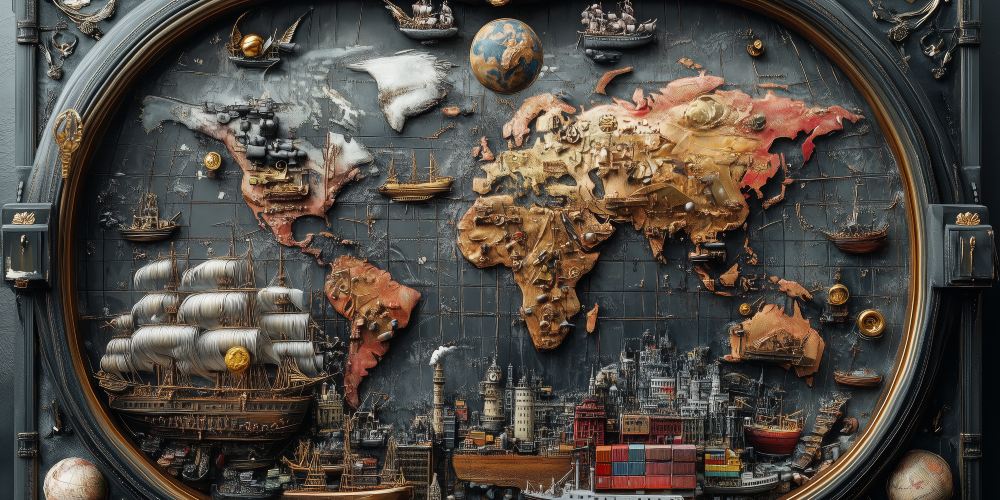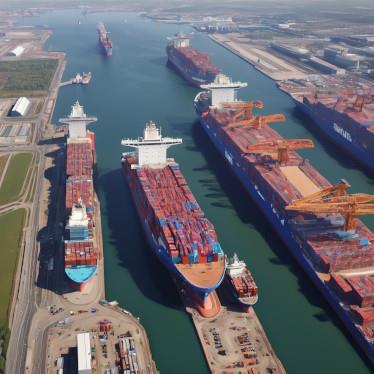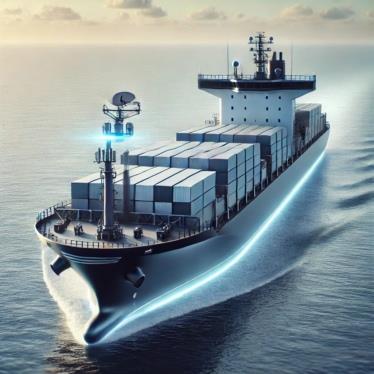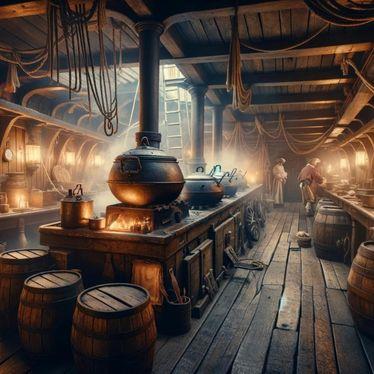
Throughout human civilization, the sea has been more than just a vast expanse of water—it has been a highway, a boundary, a battlefield, and a lifeline. Maritime history is the chronicle of our interaction with the oceans, and its influence permeates every corner of global culture. From the earliest canoes to modern container ships, seafaring has driven exploration, enabled trade, spread belief systems, and catalyzed cultural exchanges.
1. Seafaring Origins: Humanity’s First Ocean Encounters
Long before written history, humans gazed toward the horizon, driven by curiosity, necessity, or divine inspiration. The development of watercraft—initially simple dugout canoes—marked the beginning of maritime culture.
- The Austronesians, originating from Taiwan, migrated across the Pacific and Indian Oceans thousands of years ago, populating vast island networks like the Philippines, Indonesia, and Polynesia using double-hulled canoes and celestial navigation.
- The Nile civilization used papyrus rafts and wooden boats to trade and administer an empire long before Rome existed.
- In the Mediterranean, Minoan Crete and later the Phoenicians developed advanced shipbuilding techniques, enabling them to trade dyes, metals, and pottery across ancient coasts.
2. The Maritime Engine of Trade and Empire
As civilizations matured, maritime routes became the lifeblood of commerce and empire-building. Sea lanes were safer and faster than overland routes, allowing bulk goods to be transported efficiently.
- The Indian Ocean Trade Network connected East Africa, the Middle East, India, and Southeast Asia in a complex system where spices, textiles, ivory, and ideas flowed freely.
- Greek and Roman navies patrolled the Mediterranean (Mare Nostrum), ensuring commerce and military supremacy.
- Maritime city-states such as Venice and Malacca grew rich by controlling chokepoints and trading hubs.
Control of the seas often determined the fate of nations. Maritime empires such as Portugal, Spain, England, and the Netherlands launched fleets that spanned continents, colonized lands, and reshaped the world’s political map.
3. Exploration and the Transformation of World Geography
The so-called Age of Exploration (15th–17th centuries) wasn't just about discovering new lands—it was about linking previously isolated worlds. This was the first truly global era of maritime activity.
- Portuguese explorers like Prince Henry the Navigator, Bartolomeu Dias, and Vasco da Gama pushed around Africa toward Asia.
- Spanish voyages under Columbus and Magellan brought Europe into direct contact with the Americas and circumnavigated the globe.
- These journeys redrew the world map and marked the start of the Columbian Exchange—a transfer of plants, animals, people, technology, and diseases between hemispheres.
With ships came missionaries, merchants, and migrants. The cultural consequences were profound, ranging from the introduction of Christianity to Asia and Africa to the blending of cuisines, music, and architecture in colonial port cities.
4. Maritime Warfare and the Balance of Power
Control of oceans wasn’t merely economic—it was deeply strategic. Naval supremacy enabled empires to project power across vast territories.
- The Spanish Armada and the Battle of Lepanto showed how fleets could make or break empires.
- The Royal Navy became the world’s most powerful force from the 18th century onward, helping Britain dominate trade and colonial rule.
- In the 20th century, maritime strength evolved to include submarines, aircraft carriers, and global naval logistics. Battles like Midway and the Atlantic convoys were pivotal in World War II.
Naval presence still serves as a political signal today, with maritime patrols and port visits used to assert influence or deter rivals.
5. The Maritime Web of Cultural Exchange
Perhaps the most enduring impact of maritime history is cultural. The sea has always facilitated the exchange of ideas, beliefs, art forms, and languages.
- Islam spread along Indian Ocean trade routes, reaching East Africa, Southeast Asia, and China through seafaring merchants.
- African diaspora culture, especially music and dance, traveled via the transatlantic slave trade and laid the foundation for genres like jazz, blues, and samba.
- Chinese porcelain, Indian spices, and Arab mathematics enriched European life, just as Western technology and art flowed in the opposite direction.
Port cities—like Istanbul, Alexandria, Zanzibar, Amsterdam, Cartagena, and Singapore—became cosmopolitan centers where people, languages, and lifestyles mingled in unique ways.
6. Modern Maritime Legacy: The Sea Today
Even in our digital age, the sea remains central to life:
- Over 90% of global goods are still transported by ships.
- Modern laws such as the United Nations Convention on the Law of the Sea (UNCLOS) regulate maritime boundaries, fishing rights, and international shipping.
- Coastal cultures celebrate maritime heritage through music, festivals, cuisine, and rituals—from Viking reenactments in Scandinavia to dragon boat festivals in Asia.
Moreover, environmental concerns—such as plastic pollution, rising sea levels, and overfishing—have reawakened interest in sustainable ocean stewardship.
A Shared Oceanic Past, A Global Cultural Future
The sea has always connected more than it divided. It has enabled human progress, forged empires, spread religions, and brought cuisines and languages across the world. In understanding maritime history, we recognize how deeply interconnected humanity has always been—and how the ocean, more than anything else, has been our oldest and most influential global medium.


